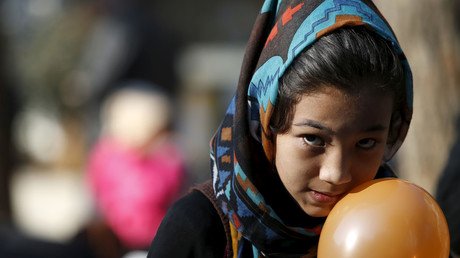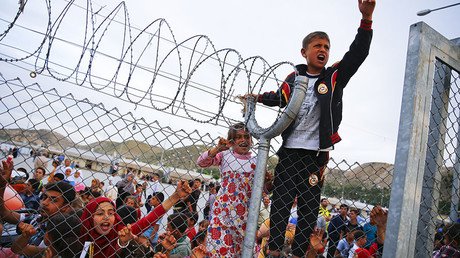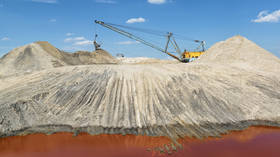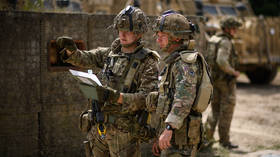‘Survival of fittest’: Children sexually assaulted at EU’s official refugee camps
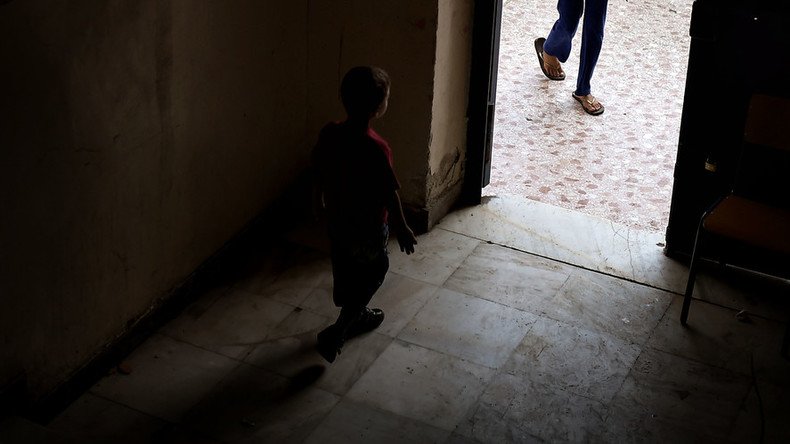
Refugee children as young as seven have been sexually assaulted in official EU migrant camps in Greece, where children and women are said to be too afraid to go outside their tents when it’s dark, a report states, citing charities working at the venues.
READ MORE: At least 19 injured as blaze strikes German refugee center (PHOTOS, VIDEO)
The revelations were published in the Observer on Saturday.
The report takes a closer look at the Softex refugee camp, a former toilet roll factory on the outskirts of Thessaloniki in Greece that hosts some 1,400 asylum seekers from besieged Syria, of whom 170 are thought to be children, according to the news outlet’s data.
The Observer quoted a local volunteer who stated that “some young girls had been effectively groomed by male gangs.” Speaking on condition of anonymity, he described an attack on a seven-year-old Iraqi girl, whose parents “are still in disbelief over what happened.”
“A man from one of the ‘mafia’ groups asked their seven-year-old daughter into their tent to play games on his phone and then zipped up the tent. She came back with marks on her arms and neck. Later the girl described how she was sexually abused. It has scarred a seven-year-old child for life,” he said.
The Iraqi family was reportedly later moved out of the camp and into an emergency facility.
The Softex refugee camp was built after the closure of the illegal Idomeni camp on Greece’s Macedonian border, where numerous clashes were seen between police and asylum seekers. The refugees from Idomeni were later relocated to Thessaloniki and its surrounding area by Greek authorities.
Reports of children being sexually abused in Greek refugee camps have also been heard by Anna Chiara Nava of Médecins Sans Frontières (Doctors without Borders) in Thessaloniki.
“It’s really hard for the unaccompanied minors – 16- and 17-years-olds – to survive. It’s the survival of the fittest in there. In the evening and night, it’s impossible to find them because they are hiding in the tents.”
She added that the women are also afraid. “They complain that during the night and evening they cannot go to the toilet alone. They have all heard of reports of others being attacked,” said Nava.
The Observer also cited Anita Dullard of the International Federation of Red Cross and Red Crescent Societies, who said the organization had informed the government of a spike in sexual abuse in Greece’s refugee camps and was also keeping in touch with the UN concerning the issue.
In May of this year, a shocking revelation emerged concerning sexual abuse at a migrant facility in southeast Turkey, where a cleaner at the Nazip refugee camp received a 108-year prison sentence for sexually abusing over two dozen Syrian refugee boys, aged 8 to 12.
The perpetrator, identified as “Erdal E.” in the court papers, said he had been deliberately luring young boys into places with no surveillance cameras, near bathrooms and other common facilities. He would pay them around 2-5 Turkish lira ($0.70-1.70) each before assaulting them.
In June, UNICEF warned that child refugees were being subject to physical and sexual abuse and exploitation en route to Europe.
Europe is currently facing its worst refugee crisis since World War II. In 2015 alone, some 1.8 million asylum-seekers entered the European Union fleeing war and poverty in Middle-Eastern countries, according to data from the European Union border agency, Frontex.
